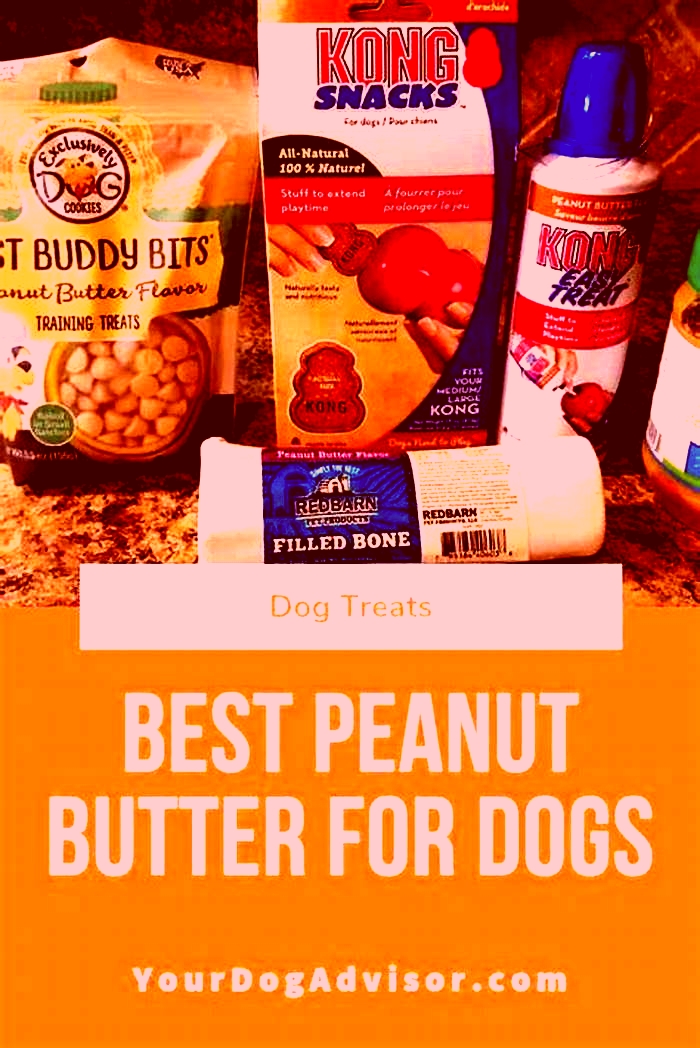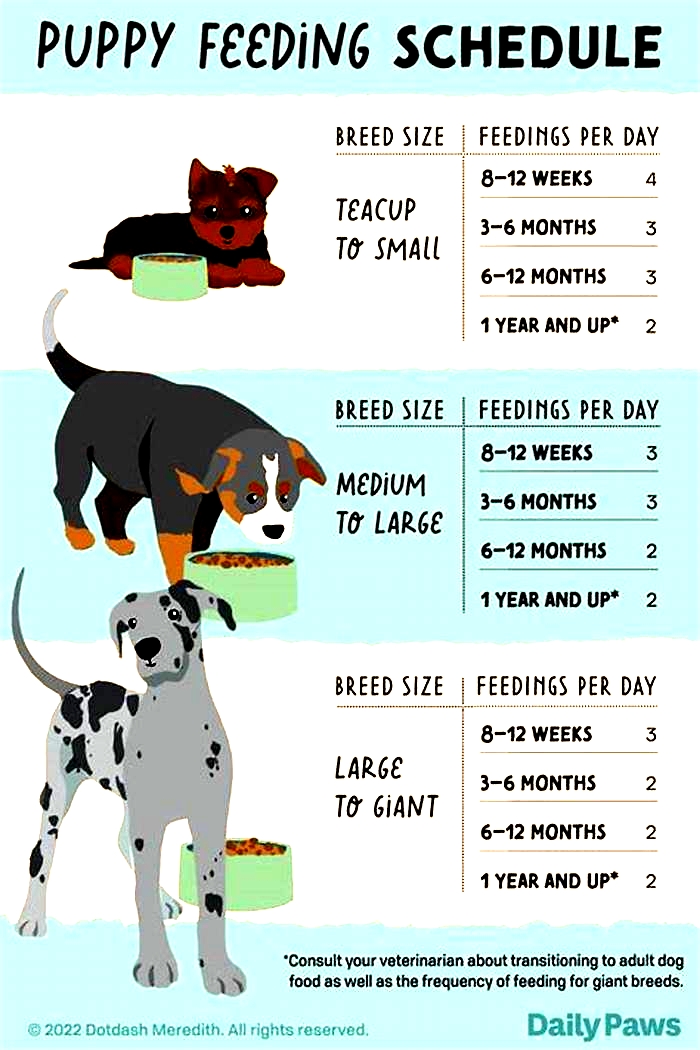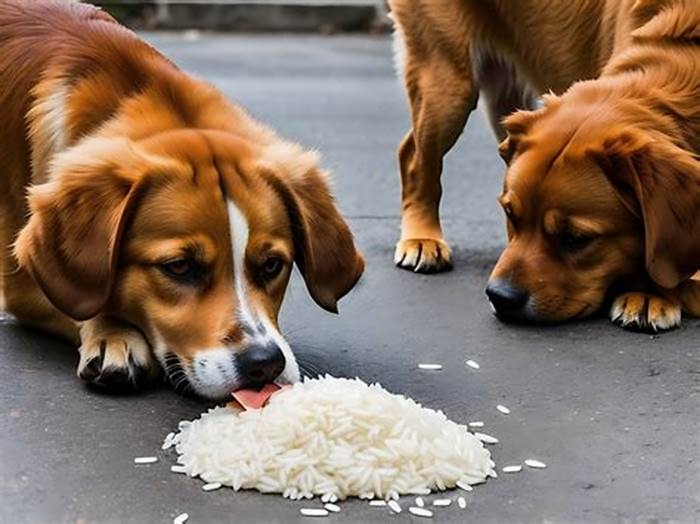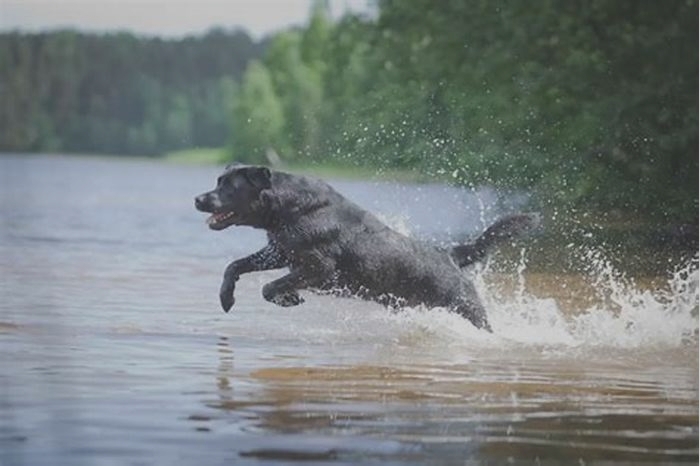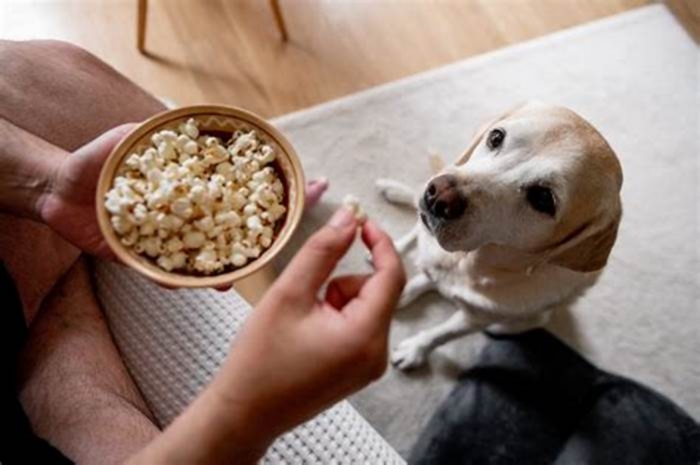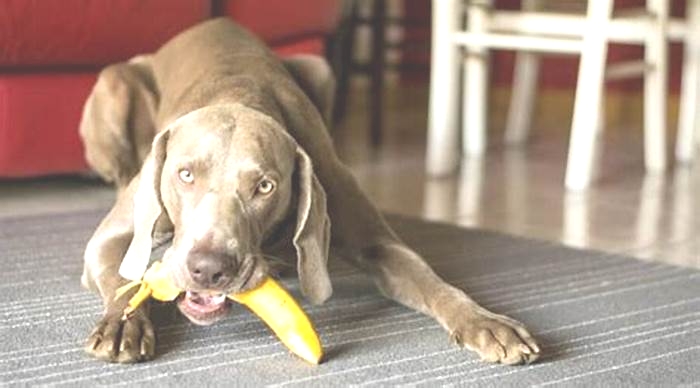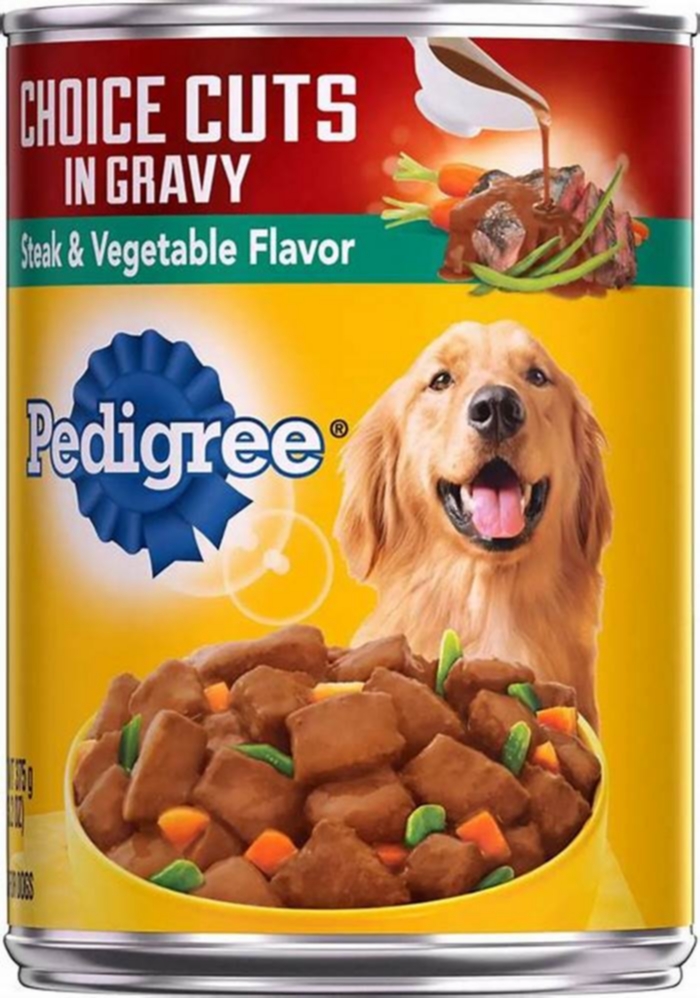Can dogs eat peanut butter
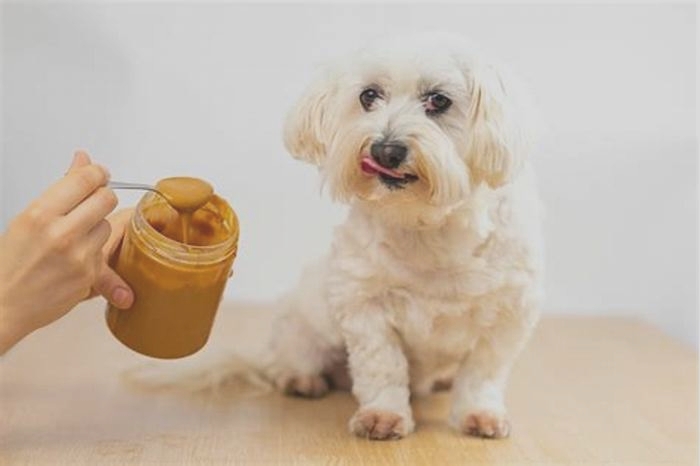
Can Dogs Eat Peanut Butter? Is It Good for Them? Vet-Reviewed Health Facts
The information is current and up-to-date in accordance with the latest veterinarian research.
Learn moreIf you are a dog owner, you are probably aware of how often peanut butter is recommended for dogs to eat. Many dogs find the taste of peanut butter irresistible, so it has multiple uses aside from being a tasty treat. Since peanut butter has become so popular for dogs to eat, you probably cant help but wonder if it is good for them.
Surely something so highly recommended cant be bad for dogs, right? Well, peanut butter is generally safe for dogs to eat and could be good for them in moderation. However, that is only if the peanut butter contains no harmful ingredients and is specifically formulated for dogs.
Keep reading to discover whether peanut butter is good for dogs and other noteworthy facts about feeding it.

The 4 Reasons the Peanut Butter is Good for Dogs to Eat
Peanut butter is more than just mashed peanuts in a jarits a blend of healthy fats, proteins, and vitamins. These nutrients have dietary benefits that naturally make them good for dogs to eat.
Not all types of peanut butter are created equal, and some have dangerous ingredients that are not good for dogs. It is best to only feed dog-specific peanut butter and avoid the ones formulated for human consumption.
So, what makes peanut butter good for dogs?
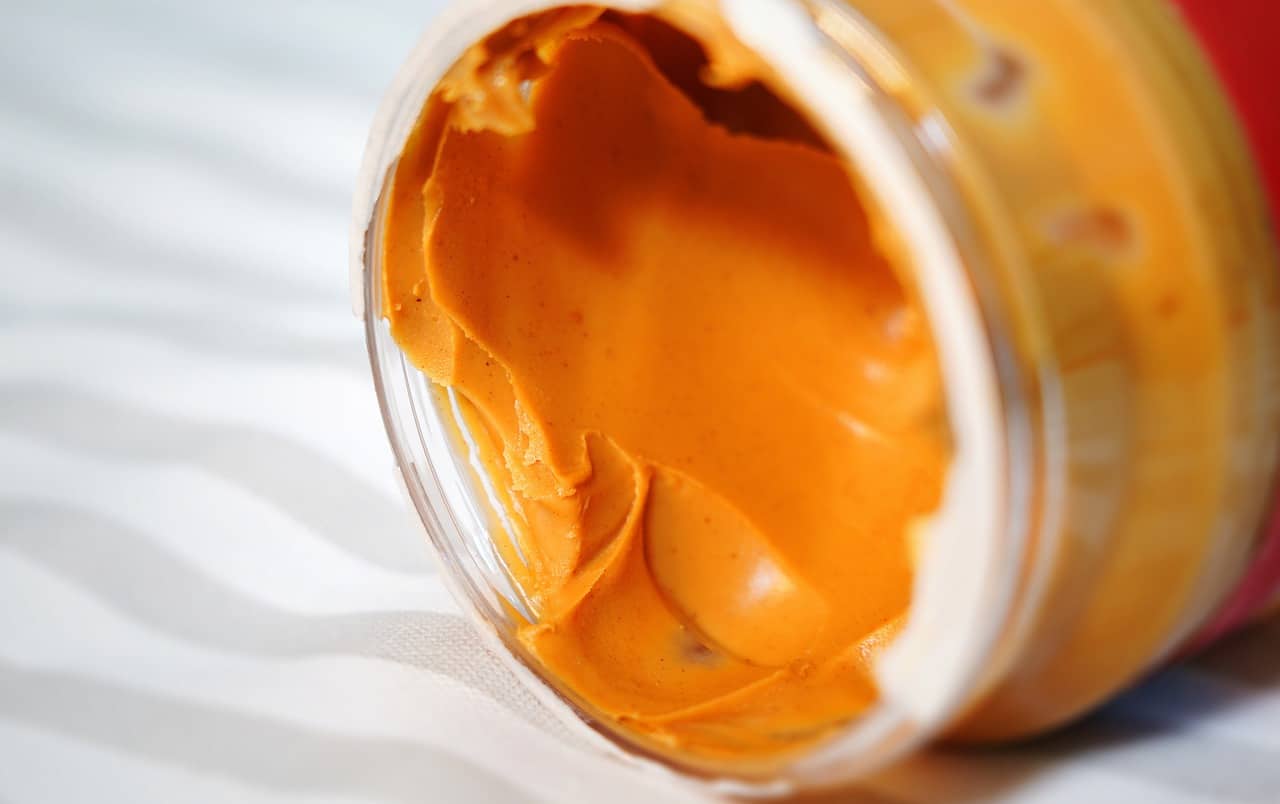
1. High in Plant-Based Proteins
For starters, peanut butter is a rich source of plant-based protein and essential amino acids. Dogs benefit from both animal-based and plant-based proteins in their diet. Peanut butter is particularly rich in the essential amino acids phenylalanine and lysine, amongst others. Phenylalanine is needed for the production of thyroid hormones, and leucine is required for muscle protein synthesis.
2. Healthy Fats
Peanut butter is full of healthy polyunsaturated and monounsaturated fats. It contains polyunsaturated fats such as linoleic acid, an omega-6 fatty acid. Linoleic acid is not only essential for dogs since they cannot make it on their own, but it also benefits their skin and coat health.
Although the fat in peanut butter is healthy, it still should be fed sparingly as its packed with calories. Its important to offer peanut butter to your dog in moderation, as the calories in treats should not make up more than 10% of your dogs total calories per day.
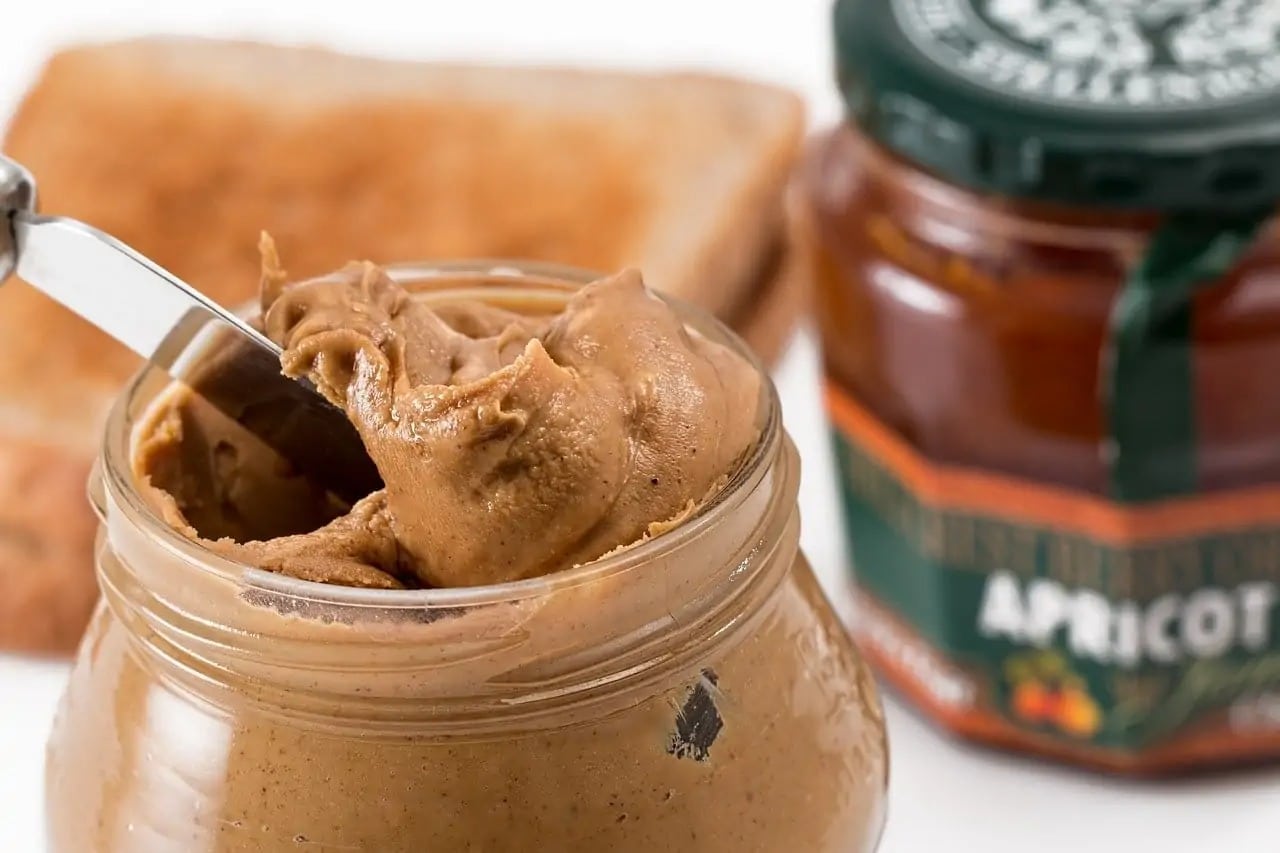
3. Source of B-Vitamins
Peanut butter is an excellent source of niacin or vitamin B3. Niacin is an important vitamin for dogs and has a role in enzyme and skin barrier function.
4. Multiple Uses
The nutrients in peanut butter are not its only benefits for dogs. Peanut butter has multiple uses for dogs aside from being a tasty snack. Some dog owners use peanut butter to get their dogs to take certain medications. Most dogs wont resist eating medication if it is covered with peanut butter. Also, peanut butter can be used to encourage dogs to chew their toys or to keep them distracted while being groomed.

Dangers of Feeding Peanut Butter to Dogs
Despite dog-specific peanut butter being safe for dogs to eat, its important to know the dangers of certain regular peanut butter. Before you rush to give your dog peanut butter, be sure to check the ingredients on the label. Some seemingly innocent ingredients can be deadly for our dogs.
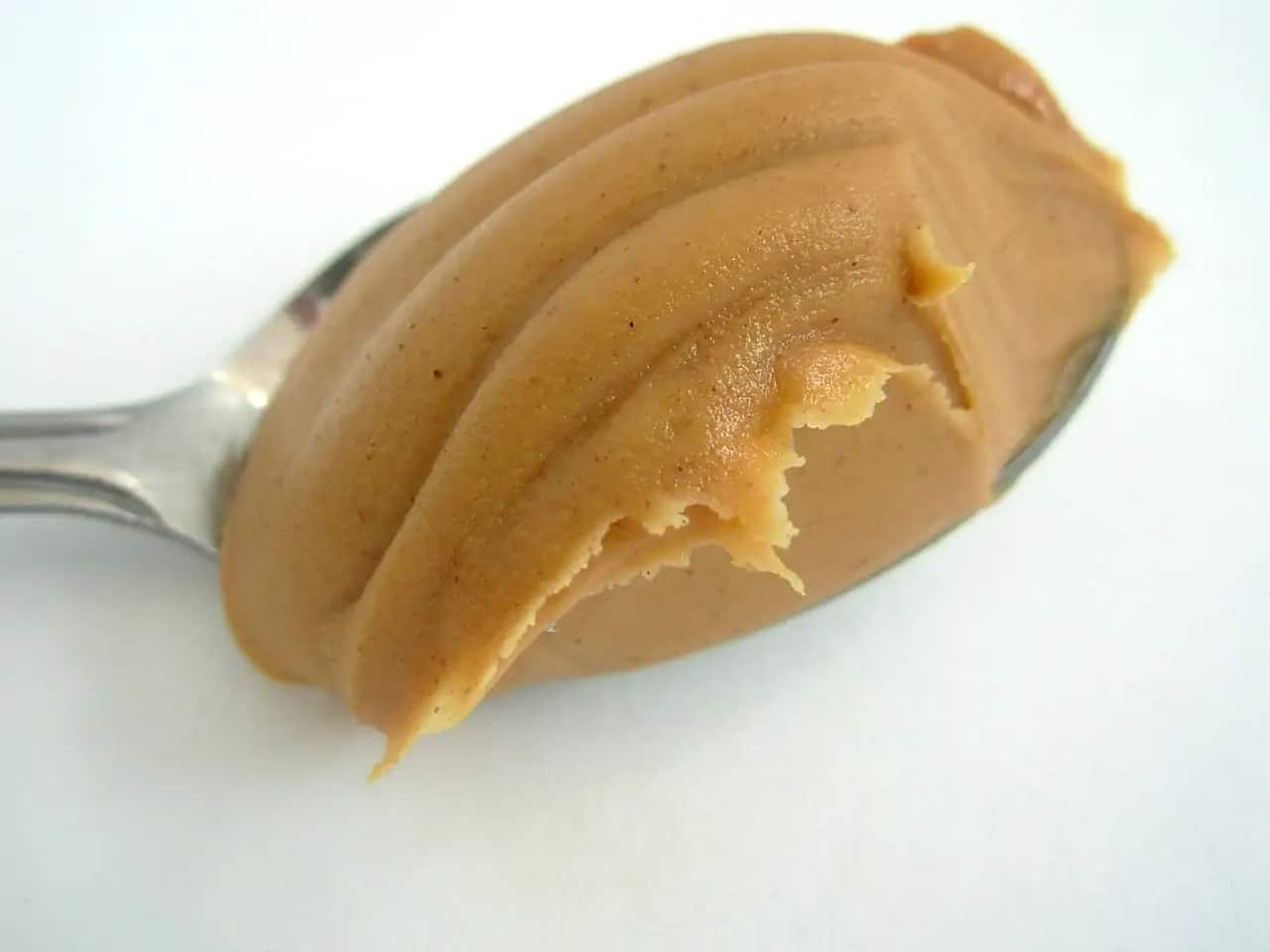
Xylitol
Although many brands of peanut butter do not contain xylitol, there are several that do. Xylitol is typically used as a sugar substitute for humans, and it is extremely toxic for dogs. Even the smallest amounts of xylitol in peanut butter can put your dogs health at risk.
Signs your dog has ingested xylitol may include:
- Hypoglycemia (low blood sugar)
- Liver failure
- Seizures
- Death
Too Salty
Most peanut butter for humans has added salt, which is not good for your dog in excessive amounts. Dogs should be offered unsalted peanut butter, ideally. Most dogs dont prefer the taste of salty foods, so feeding them unsalted peanut butter wont be less of a treat.
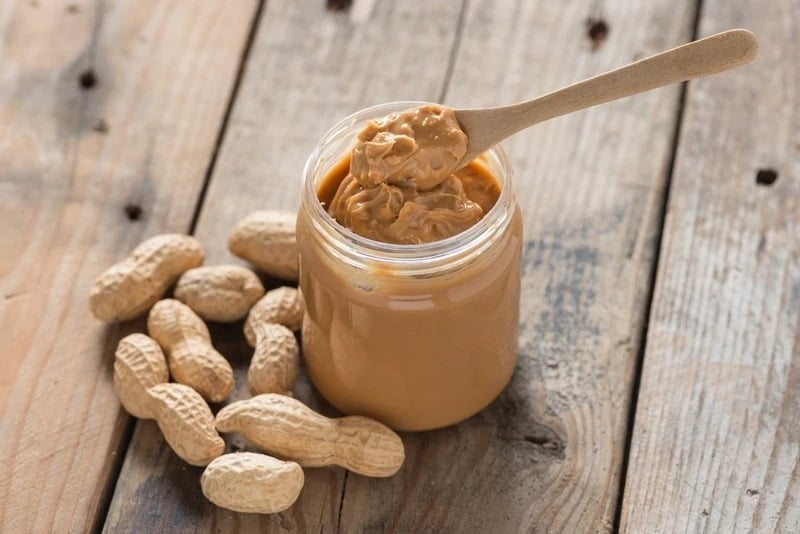
Feeding Peanut Butter to Dogs Safely
If you feel inclined to feed peanut butter to your dog, ensure that it is specifically formulated for dogs to eat, or that you check the ingredients thoroughly to ensure it doesnt contain xylitol or extra salt or sugar. Opting for peanut butter sold specifically for dogs can take away the risk of buying the wrong type.
Dog-specific peanut butter, such as the popular Bark Bistro Buddy Butter, is free from harmful ingredients that put your dogs health at risk. They contain no xylitol or added salt, sugar, or oils. Plus, it has been formulated to fit the dietary requirements of dogs rather than humans.
You should not feed peanut butter to your dog too often and ideally no more than a tablespoon for medium to large dog breeds. Smaller dog breeds should not eat more than a teaspoon of peanut butter at a time.

Conclusion
Peanut butter is generally good for dogs when fed sparingly and in moderation. Aside from being safe if it is xylitol-free and unsalted, peanut butter has dietary benefits for dogs. Peanut butter is rich in healthy fats and essential plant-based proteins.
As with most treats, peanut butter should only be offered in addition to your dogs complete, balanced diet as it is a treat food.
Featured Image Credit: Towfiqu barbhuiya, Unsplash
Can Dogs Eat Peanut Butter?
Whether youre a new pet parent or an experienced one, you may wonder if its safe and/or healthy to give your dog peanut butter.
Many peanut butters are, indeed, safe for most healthy dogs.
Peanut butter is commonly used when giving medications, but can serve some other really useful purposes in your dogs training and playtime. However, you should discuss with your veterinarian whether your dog in particular should have peanut butter.
Heres what you need to know about ways to use peanut butter, health and safety considerations for your dog, and how much you should give them.
How Much Peanut Butter Can a Dog Eat?
Just because a dog can eat peanut butter doesnt mean you can give them as much as they want. You will need to consider the calories and the fat, and limit the amount accordingly.
Peanut butter is high in calories and fat, so less is more.
Peanut butter is energy-dense, with around 180-200 calories per 2 tablespoonsmost of which comes from fat. That means the calories in peanut butter add up quickly.
Ask your vet how many calories your dog should be eating per day, including both meals and treats. No more than 10% of your dogs total calories per day should come from treats.
Only give as much peanut butter as your dog needs for giving medications, using in a puzzle feeder, or for bath-time cooperation, and not any extra. For some medication, only a pea-sized amount of peanut butter will do.
If given as a treat, your dog will find a small amount to be just as thrilling as a large amount.
As a starting point, it is reasonable to limit peanut butter offerings to:
teaspoon for a small dog, twice per day
1 teaspoon for a medium or large dog, twice per day as a maximum amount
Your individual dogs needs may vary based on their general health and diagnosed conditions. If your dog is on a special diet, or has been diagnosed with diseases like diabetes, pancreatitis, obesity, or sensitive stomach, ask your vet if peanut butter is still okay for you to give.
Peanut butter is not a balanced source of nutrition.
Could the high calorie content of peanut butter help skinny dogs that need to gain weight? Unfortunately, the answer is not healthfully. Peanut butter does not provide a balanced source of nutrients, as it is mostly fat.
For that reason, feeding excessive amounts may do more harm than good for an under-nourished dog.
After examining your dog for underlying health concerns, your vet will make recommendations for safe, calorie-dense diets and treats.
Dangers of Peanut Butter for Dogs
While peanut butter is the go-to treat for many pet parents, here are a few things to be careful of.
Do Not Use Peanut Butter Containing Xylitol
Xylitol is an artificial sweetener thats common in gum and sugar-free snacks, and its used in some brands of peanut butter. Xylitol ingestion can be life-threatening for dogs in multiple ways.
Xylitol causes a sudden, dangerous drop in blood sugar. Low blood sugar, also called hypoglycemia, causes confusion, stumbling, lethargy (excessive sleepiness and depression), and seizures. When left untreated, low blood sugar can lead to death.
In addition to low blood sugar, xylitol can also cause severe liver damage. Make sure your favorite brand of peanut butter is safe by reading the ingredients list printed on the label, especially for any product labeled as sugar-free.
Contact your veterinarian immediately if your dog eats a product with xylitol in it. If your regular veterinarians clinic is closed, call an emergency service for guidance.
Dogs Can Be Allergic to Nuts, Too
While sudden, life-threatening allergic reactions typical in humans with nut allergies are rare in dogs, other allergic signs may occur.
Vomiting and diarrhea, as well as skin disorders like itching, hair loss, and excessively greasy hair coat, may all occur with a food allergy and can sometimes be severe. If you ever notice any of these signs after giving your dog peanut butter, stop offering it and call your veterinarian.
Keep in mind that if a household member is allergic to peanut butter, your dogs mouth and breath may transfer the allergen to them or around your house.
How to Use Peanut Butter Safely With Dogs
Here are three scenarios where you might use peanut butter, plus tips on giving it to your dog safely.
Using Peanut Butter to Give Medication
Giving medications like pills and capsules can be stressful since most dogs wont willingly eat plain medication.
Peanut butter can help make this job easier by cloaking the medication in something delicious. The stickiness and intense flavor of peanut butter disguises the texture and flavor of most pills.
When you first start using peanut butter to give your dog medications, be sure to offer a dollop with no medications hidden inside yet. Get them excited to eat the peanut butter by asking them to sit first, as you would for any treat, then offer it as a reward.
Once you know he or she likes peanut butter, then you can try hiding medication inside. Many dogs will gulp down the medication and peanut butter without a second thought.
Feeding Peanut Butter for Bath Time
When training your dog to tolerate bath time, try smearing a small amount of peanut butter on the wall of your tub or shower as a distraction. As they busily lick it off, they will be less focused on being washed, making it more fun for both of you.
Using Peanut Butter for Playtime
If you have a smart, high-energy dog that is highly food-motivated, consider using peanut butter with a fun puzzle feeder toy.
You can fill a large Kong with kibble, seal the hole with peanut butter, and put it in the freezer for two to three hours. Offer this puzzle on an easy-to-clean floor and challenge your dog to figure out how to spill the kibble out. This is a great way to keep your dog entertained when youre home and want to keep an eye on them, but are unable to play.
Keep your dog safe by using a xylitol-free peanut butter. Keep his or her general health and waistline in mind when offering peanut butter as a treat.
If you have any questions or concerns about your dogs diet, contact your veterinarian for help and recommendations. Every dog is different, so be mindful of how peanut butter affects them.
Featured Image: Adobe/Photoboyko
Can Dogs Eat Peanut Butter?
There's no question that dogs love the peanute butter, but you may have wondered if it's actually good (or bad) for them. Although it's an ingredient in a lot of commercial dog treats, the answer may surprise you. Here's the lowdown on peanut butter for dogs, as well as some safe alternative human foods dogs can eat.
Xylitol & Other Cautions About Peanut Butter
 Many brands of peanut butter contain added ingredients that are unhealthy and even harmful for dogs. Some peanut butters include an artificial sweetener called xylitol, which is extremely toxic to pets.
Many brands of peanut butter contain added ingredients that are unhealthy and even harmful for dogs. Some peanut butters include an artificial sweetener called xylitol, which is extremely toxic to pets.
Often, peanut butter contains added sugar that can contribute to weight gain. Peanut butter also typically contains added salt that makes it high in sodium, and certain fats, such as palm oil. Pet parents should check with their veterinarian to ensure that peanut butter is acceptable for their pet, especially those pets with health conditions.
Can Dogs Eat Peanut Butter?
While there are reasons to be cautious about feeding this sticky treat to your dog, the news isn't all bad. Natural peanut butter is a great source of protein, B and E vitamins, and healthy monounsaturated fats, says the AKC. There are a lot of commercial treats with peanut butter that can be fun for your pet. But as with all treats, they should be limited to 10% of daily calories so not to upset nutritional balance. If your dog is crazy about peanut butter, they can eat it in moderation as long as you're careful to check the ingredients and run it by your veterinarian first. Look for all-natural, unsalted peanut butter that lists peanuts as the only ingredient.
You could also make peanut butter at home by simply grinding peanuts in a food processor. If you choose to go this route, be sure to source your peanuts from a reputable source. Peanuts found in nature can sometimes have a fungus on them called Aspergillus flavus and Aspergillus parasiticus, the fungus that produces the aflatoxins (cancer producing toxins) says The National Cancer Institute. This is why in the U.S. the FDA inspects foods like peanuts and peanut butter for human consumption to reduce the risk for people.
Remember that too much of a good thing isn't good for your pup. Between the high fat and calorie content and the threat of aflatoxins, it's best to limit even natural or homemade peanut butter to an occasional treat.
Peanut Allergies in Dogs
Although it's rare, some dogs can develop peanut allergies. While anaphylactic shock and difficulty breathing can occur in dogs with peanut allergies, this type of reaction is most commonly found as a result of being bitten or stung by an insect or from a reaction to medication. Sometimes allergies will result in facial swelling or skin reactions. If you notice these symptoms after giving peanut butter to your dog, stop feeding them peanut butter immediately and consult your vet, who can help determine whether your dog is allergic to peanuts or something else. This is also why it is always a good idea to consult your vet before feeding your dog anything. Since peanut allergies can be serious in children and adults, those individuals need to be careful to avoid contact with pets that may have consumed peanut butter. The risk that peanut residue can end up on their fur is also another real risk for people with severe peanut allergies.
Ways to Treat Your Pooch With Peanut Butter

Here are a few fun ways to give your dog one of the yummiest human foods dogs can eat:
- Make medication fun: If your dog hates taking medication, hide pills in natural peanut butter to make sure they go down right.
- Sweeten entertainment: Use peanut butter to fill a treat toy, and let your pooch lick to their heart's content.
Can dogs eat peanut butter? As long as peanuts are the only ingredient, your peanut butter-loving pooch doesn't have to forgo it entirely. Alternating the occasional lick of peanut butter with healthy treats will keep them satisfied.

